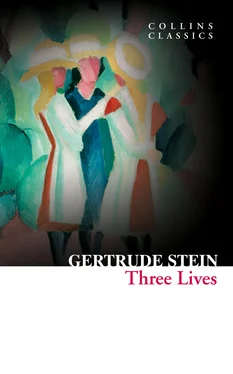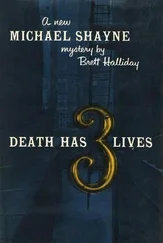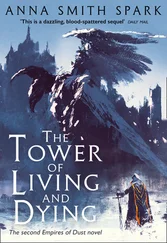THREE LIVES
Gertrude Stein
Copyright Copyright History of William Collins Life & Times The Good Anna Part One Part Two Part Three Melanctha The Gentle Lena Classic Literature: Words and Phrases About the Publisher
William Collins
An imprint of HarperCollins Publishers
1 London Bridge Street
London SE1 9GF
WilliamCollinsBooks.com
This eBook edition published by William Collins in 2017
Life & Times section © HarperCollins Publishers Ltd
Silvia Crompton asserts her moral right as author of the Life & Times section
Classic Literature: Words and Phrases adapted from
Collins English Dictionary
Cover by e-Digital Design
Cover illustration: Three girls in yellow straw hats , 1913, Macke, August (1887-1914) / Haags Gemeentemuseum, The Hague, Netherlands / Bridgeman Images
A catalogue record for this book is available from the British Library
This novel is entirely a work of fiction. The names, characters and incidents portrayed in it are the work of the author’s imagination. Any resemblance to actual persons, living or dead, events or localities is entirely coincidental.
All rights reserved under International and Pan-American Copyright Conventions. By payment of the required fees, you have been granted the non-exclusive, non-transferable right to access and read the text of this e-book on-screen. No part of this text may be reproduced, transmitted, down-loaded, decompiled, reverse engineered, or stored in or introduced into any information storage and retrieval system, in any form or by any means, whether electronic or mechanical, now known or hereinafter invented, without the express written permission of HarperCollins
Source ISBN: 9780008242114
Ebook Edition © June 2017 ISBN: 9780008242121
Version: 2017-05-30
Contents
Cover
Title Page THREE LIVES Gertrude Stein
Copyright Copyright Copyright History of William Collins Life & Times The Good Anna Part One Part Two Part Three Melanctha The Gentle Lena Classic Literature: Words and Phrases About the Publisher William Collins An imprint of HarperCollins Publishers 1 London Bridge Street London SE1 9GF WilliamCollinsBooks.com This eBook edition published by William Collins in 2017 Life & Times section © HarperCollins Publishers Ltd Silvia Crompton asserts her moral right as author of the Life & Times section Classic Literature: Words and Phrases adapted from Collins English Dictionary Cover by e-Digital Design Cover illustration: Three girls in yellow straw hats , 1913, Macke, August (1887-1914) / Haags Gemeentemuseum, The Hague, Netherlands / Bridgeman Images A catalogue record for this book is available from the British Library This novel is entirely a work of fiction. The names, characters and incidents portrayed in it are the work of the author’s imagination. Any resemblance to actual persons, living or dead, events or localities is entirely coincidental. All rights reserved under International and Pan-American Copyright Conventions. By payment of the required fees, you have been granted the non-exclusive, non-transferable right to access and read the text of this e-book on-screen. No part of this text may be reproduced, transmitted, down-loaded, decompiled, reverse engineered, or stored in or introduced into any information storage and retrieval system, in any form or by any means, whether electronic or mechanical, now known or hereinafter invented, without the express written permission of HarperCollins Source ISBN: 9780008242114 Ebook Edition © June 2017 ISBN: 9780008242121 Version: 2017-05-30
History of William Collins
Life & Times
The Good Anna
Part One
Part Two
Part Three
Melanctha
The Gentle Lena
Classic Literature: Words and Phrases
About the Publisher
History of William Collins
In 1819, millworker William Collins from Glasgow, Scotland, set up a company for printing and publishing pamphlets, sermons, hymn books, and prayer books. That company was Collins and was to mark the birth of HarperCollins Publishers as we know it today. The long tradition of Collins dictionary publishing can be traced back to the first dictionary William co-published in 1825, Greek and English Lexicon . Indeed, from 1840 onwards, he began to produce illustrated dictionaries and even obtained a licence to print and publish the Bible.
Soon after, William published the first Collins novel; however, it was the time of the Long Depression, where harvests were poor, prices were high, potato crops had failed, and violence was erupting in Europe. As a result, many factories across the country were forced to close down and William chose to retire in 1846, partly due to the hardships he was facing.
Aged 30, William’s son, William II, took over the business. A keen humanitarian with a warm heart and a generous spirit, William II was truly ‘Victorian’ in his outlook. He introduced new, up-to-date steam presses and published affordable editions of Shakespeare’s works and The Pilgrim’s Progress , making them available to the masses for the first time.
A new demand for educational books meant that success came with the publication of travel books, scientific books, encyclopedias, and dictionaries. This demand to be educated led to the later publication of atlases, and Collins also held the monopoly on scripture writing at the time.
In the 1860s Collins began to expand and diversify and the idea of ‘books for the millions’ was developed, although the phrase wasn’t coined until 1907. Affordable editions of classical literature were published, and in 1903 Collins introduced 10 titles in their Collins Handy Illustrated Pocket Novels. These proved so popular that a few years later this had increased to an output of 50 volumes, selling nearly half a million in their year of publication. In the same year, The Everyman’s Library was also instituted, with the idea of publishing an affordable library of the most important classical works, biographies, religious and philosophical treatments, plays, poems, travel, and adventure. This series eclipsed all competition at the time, and the introduction of paperback books in the 1950s helped to open that market and marked a high point in the industry.
HarperCollins is and has always been a champion of the classics, and the current Collins Classics series follows in this tradition – publishing classical literature that is affordable and available to all. Beautifully packaged, highly collectible, and intended to be reread and enjoyed at every opportunity.
Life & Times
About the Author
‘I know that I am the most important writer writing today,’ Gertrude Stein declared in a 1937 memoir, a statement that, even at the time, would have sparked lively debate. During the early decades of the twentieth century, she had produced novels, poems and plays, much of her work being written in an iconic experimental style that her admirers considered daring, her critics nonsensical. But there is little doubt that Stein was one of the most important artistic figures of her day. As a writer, she challenged the established boundaries of the English language; as an art collector, she amassed and exhibited an extraordinary hoard of era-defining paintings; and as an unapologetically gay woman, she lived her life in the public eye with an openness that would still be remarkable today.
‘There is No There There’
Gertrude Stein was born in Pennsylvania in February 1874, the youngest child of wealthy Jewish parents. Her early years were spent in Europe, notably in the artistic and cultural hub of Vienna, but the family returned to the United States when Gertrude was four. They lived in Oakland, California, for fourteen years, a period during which both parents passed away and Stein’s brother Michael assumed responsibility for the family. Revisiting her neighbourhood many years later and finding it unrecognisably altered, Stein famously commented that ‘there is no there there’.
Читать дальше












